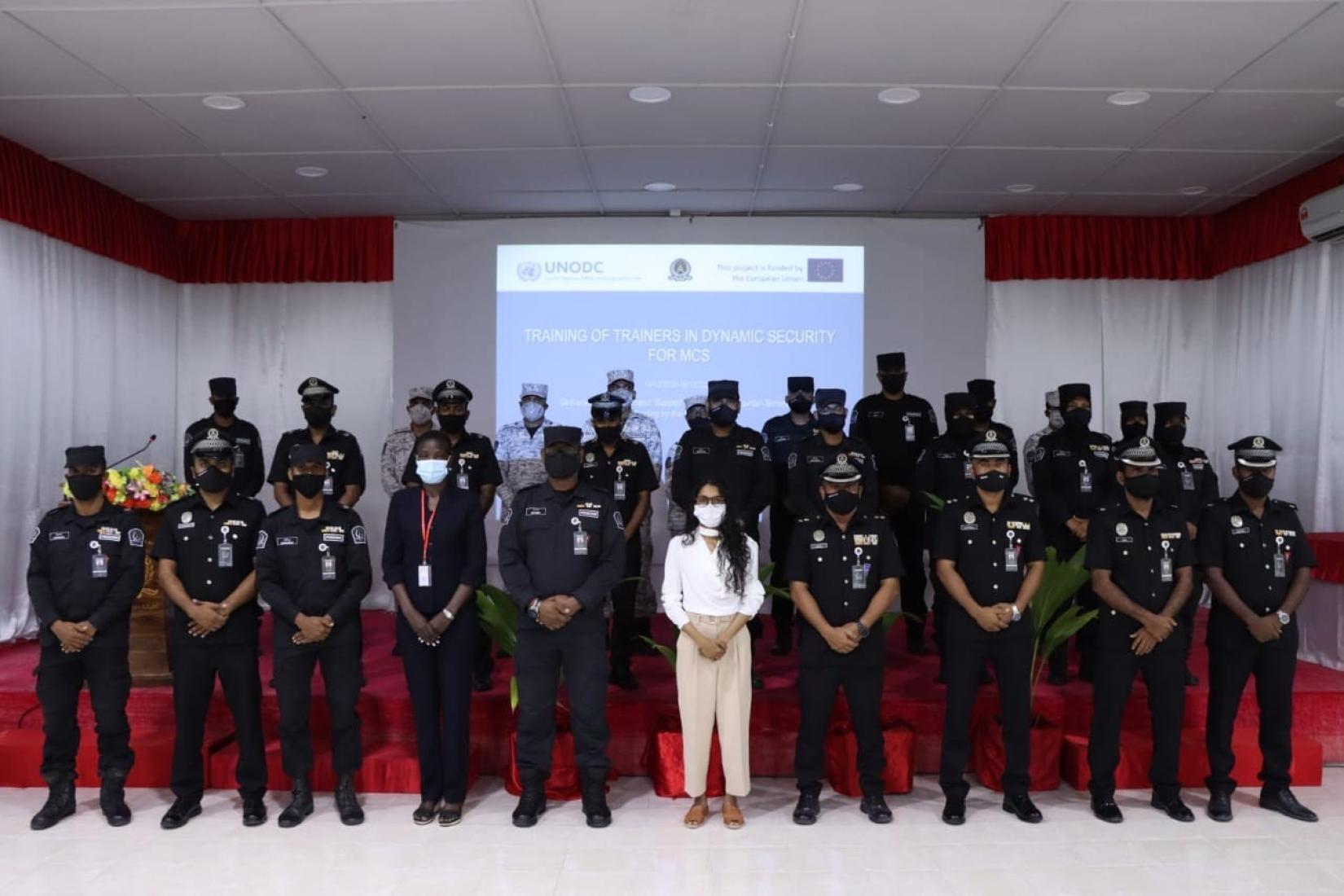Maldives: UNODC builds national capacity of the Maldives Correctional Service on “dynamic security” for prison officers
08 January 2021
Male (Maldives)/08 January 2021: The increasing prevalence of radicalization in prisons is a growing concern for the Government of Maldives and poses significant challenges to the security and safety of prison environments. Humane prison conditions and rehabilitative approaches to prison management contributes to a safer and secure prison environment. Establishing positive relationships between prison officers and inmates contribute to increased safety and security of prison environments.

Focusing on these aspects, UNODC is implementing the project, “Support to Maldives on Counter-Terrorism”, with funding from the European Union. The project aims to enhance the capacity of Maldives Correctional Service (MCS) to promote rule-of-law based approaches to counter terrorism, and effectively managing high risk prisoners and prisoners requiring special management.
In this context, a three-day train-the-trainer (ToT) dynamic security course was organized by UNODC Regional Office for South Asia (ROSA), in collaboration with the Maldives Correctional Service (MCS) in December 2020.
Convened at the Institute for Correctional Studies in Maafushi Prison, Maldives, the ToT was attended by 19 Correctional Officers (4 female and 15 male officers). The course was led by UNODC prison expert Ms. Aida Mnyolmo, whose on-site participation was facilitated by MCS. The course focused on helping participants understand the personal situation of prisoners, as a part of establishing a positive communication between prison officers and inmates. The ToT was based on UNODC Handbook on Dynamic Security and Prison Intelligence.
The opening ceremony of the workshop was attended by the Assistant Superintendent Ahmed Riza, Director of Maafushi Prisons, Deputy Director of Maafushi Prisons, Deputy Director of the Institute for Correctional Studies, Commissioned Officers and UNODC National Programme Coordinator Ms. Thoiba Saeedh. In his special remarks, Assistant Superintendent Ahmed Riza, Director of Maafushi Prison, highlighted the importance of dynamic security in prison practices, especially on the need to establish positive relationships with prisoners to prevent escapes, unrests and potential risks that could undermine the safety of the prison.
The course was the first of a series of training courses on managing the safety and security of prisons. The training enabled participants to introduce effective prison management practices and identify risks based on prison intelligence. The principle of dynamic security supplements physical and procedural security in prisons by ensuring external security (preventing evasions) and internal security (preventing unrest).
UNODC supports member States in prison reform, through support to improve detention conditions, capacity building of officers, technical and advisory support, in line with international standards and norms.
Link to UNODC Handbook on Dynamic Security and Prison Intelligence

